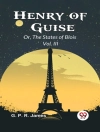In ‘The Wind in the Rose-Bush, and Other Stories of the Supernatural, ‘ Mary Eleanor Wilkins Freeman crafts a collection of tales that explore the intersection of the mundane and the eerie. Drawing from her New England roots, Freeman’s literary style features intricate character development and atmospheric detail, which immerse readers in the psychological landscape of her protagonists. Each story showcases her deft ability to evoke suspense and supernatural intrigue, reflecting the rising fascination with paranormal phenomena in late 19th-century American literature. The stories deftly balance realism with elements of the uncanny, often leaving readers with unsettling questions about the nature of reality and the unseen forces that may influence it. Freeman, a prominent figure in American literature, was one of the first women to write about the complexities of rural life and supernatural themes, often drawing from her personal experiences in a small New England town. Her work resonates deeply with themes of isolation and societal expectations, both of which can be observed in the lives of her characters. Wilkins Freeman’s background, which includes a strong advocacy for women’s voices in literature, profoundly informs her exploration of supernatural motifs, often framing them as reflections of societal anxieties. This collection is a must-read for enthusiasts of supernatural fiction and those intrigued by the societal constraints of Freeman’s era. The stories, rich in psychological depth and eerie twists, will captivate readers seeking to explore the boundaries of the known and the unknown, offering an insightful examination of the shadowy undercurrents that swirl beneath the surface of everyday life.
A propos de l’auteur
Mary Eleanor Wilkins Freeman (1852–1930) was a prominent 19th-century American author best known for her portrayal of the inner lives of women in New England villages, with narratives often steeped in the psychological undercurrents of ordinary life. Her literary style is characterized by realism and a nuanced exploration of gender roles and the constraints imposed by society. Freeman’s work often evokes a sense of place, illuminating the domestic lives of her characters with an empathetic and occasionally ironic voice. An accomplished author of novels and short stories, she gained significant recognition during her lifetime, and her legacy continues to be appreciated for its feminist tone and its depiction of the changing face of America.
Freeman’s collection ‘The Wind in the Rose-Bush, and Other Stories of the Supernatural’ (1903) is a testament to her versatility as a writer, displaying her skill in merging the psychological with the eerie side of New England life. Her stories in this collection, rich with gothic elements and an uncanny atmosphere, explore the intersection of the everyday and the supernatural, proving her to be a master of her genre. As with much of her work, this collection reflects Freeman’s deep understanding of human nature, her sharp eye for detail, and her ability to probe the complexities of social and emotional existence.












